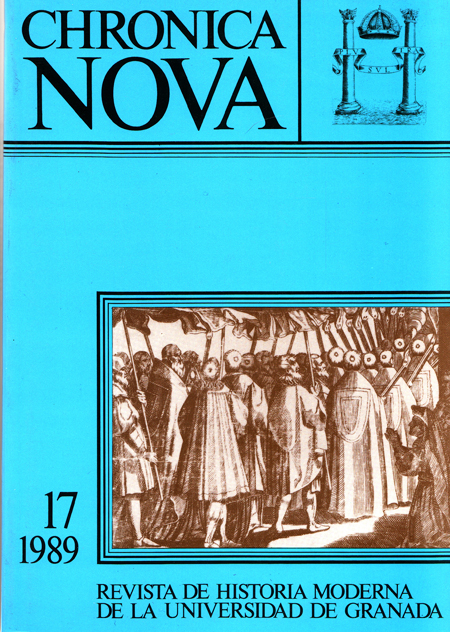Gran ofensiva antijudía de la Inquisición de Granada 1715-27
DOI :
https://doi.org/10.30827/cn.v0i17.2831Résumé
La llegada al trono del nuevo rey, Felipe V, abrió un período de esperanza para las comunidades judeo-portuguesas residentes en España. Pero a partir de 1715 con la venida de la nueva reina y sus consejeros italianos estas expectativas se vieron frustradas. La Inquisición que hasta ese momento se había visto marginada pasó a la ofensiva y desató una gran persecución antijudía por toda la península. En pocos años fueran procesadas cientos de personas, se celebraron numerosos autos de fe y de nuevo las hogueras inquisitoriales volvían a encenderse aunque esta vez en el siglo de las luces.
Con el fin de buscar una explicación a este tardío furor antijudío, el autor estudia esta persecución en un tribunal de distrito, el de Granada, que entre otras circunstancias destaca por su mayor celo represivo y la espectacularidad de algunos de sus autos de fe. Llegaron a ser procesadas cerca de cuatrocientas personas, de las cuales 36 fueron condenadas a la máxima pena y se celebraron 13 autos de fe en un período de 7 años. Después de analizar el origen de estos acontecimiento se examinan las consecuencias políticas, económicas y sociales que para el tribunal granadino conllevaron estos acontecimientos. Con estas persecuciones el Santo Oficio pretendió mostrar su poder y poner de manifiesto la necesidad imperiosa de mantener dicha institución para asegurar la unidad religiosa de los españoles amenazada permanentemente por estas minorías.
Téléchargements
Téléchargements
Comment citer
Numéro
Rubrique
Licence
Nuestra revista se atiene a las recomendaciones para la implementación del Artículo 37 Difusión en Acceso Abierto de la Ley de la Ciencia, la Tecnología y la Innovación:
- Los/as autores/as cuyas contribuciones sean aceptadas para su publicación en esta revista conservarán el derecho no exclusivo de utilizar sus contribuciones con fines académicos, de investigación y educativos, incluyendo el auto-archivo o depósito de los artículos aceptados en repositorios institucionales o temáticos de acceso abierto de cualquier tipo en un plazo máximo de seis meses.
- Preferiblemente se permitirá el uso de la versión publicada de las contribuciones científicas, que estarán accesibles en abierto tan pronto como sea posible.
-
Que en caso de que el trabajo sea aprobado para su publicación, el/la autor/a autoriza de manera ilimitada en el tiempo a la entidad editora para que incluya dicho texto en Chronica Nova y pueda reproducirlo, editarlo, distribuirlo, exhibirlo y comunicarlo en el país y en el extranjero por medios impresos, electrónicos, CD, Internet o cualquier otro medio conocido o por conocer.






 ISSN-e: 2445-1908
ISSN-e: 2445-1908










